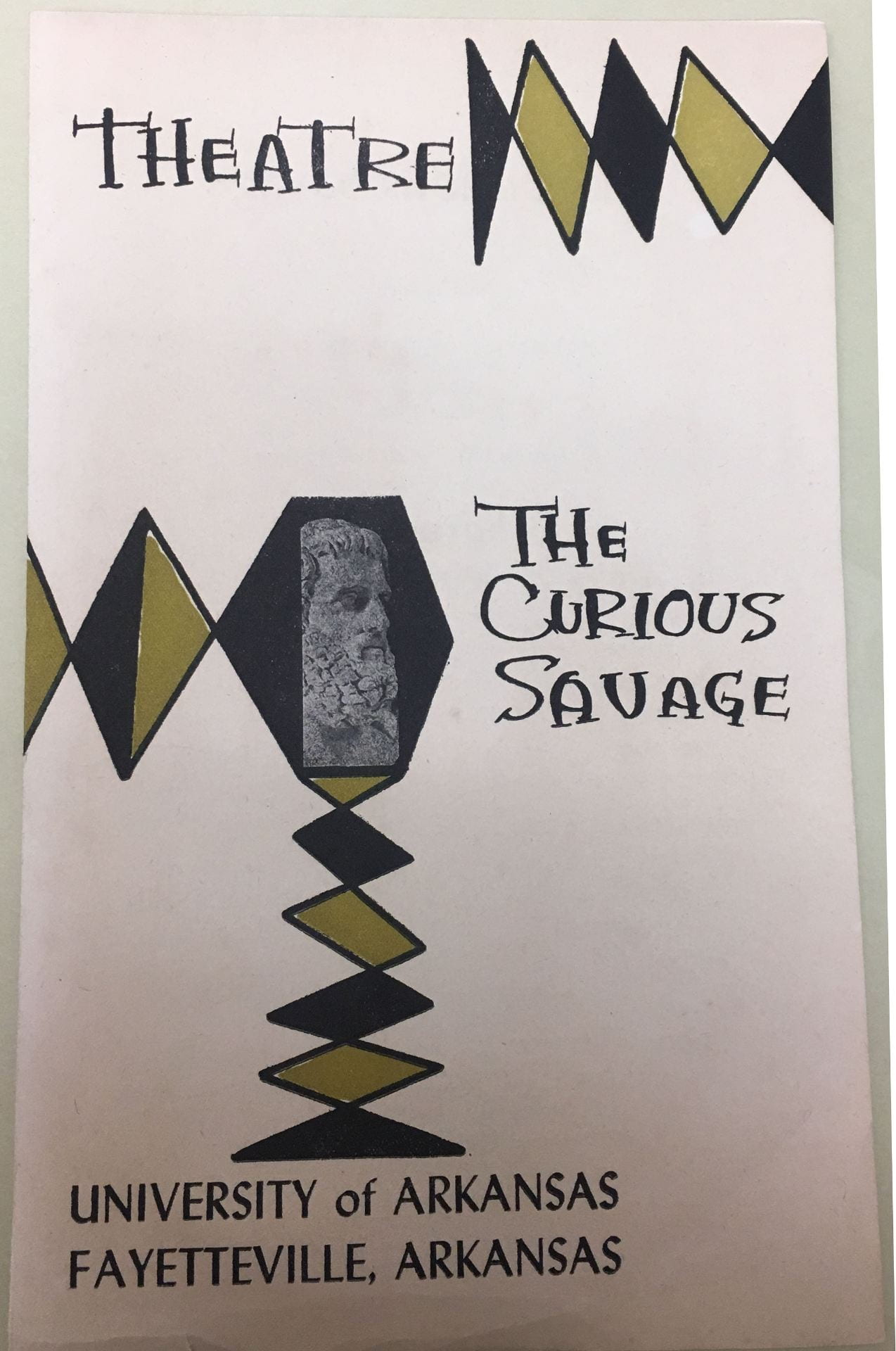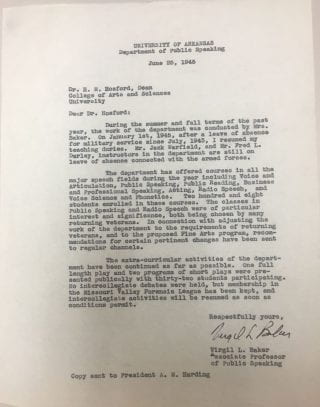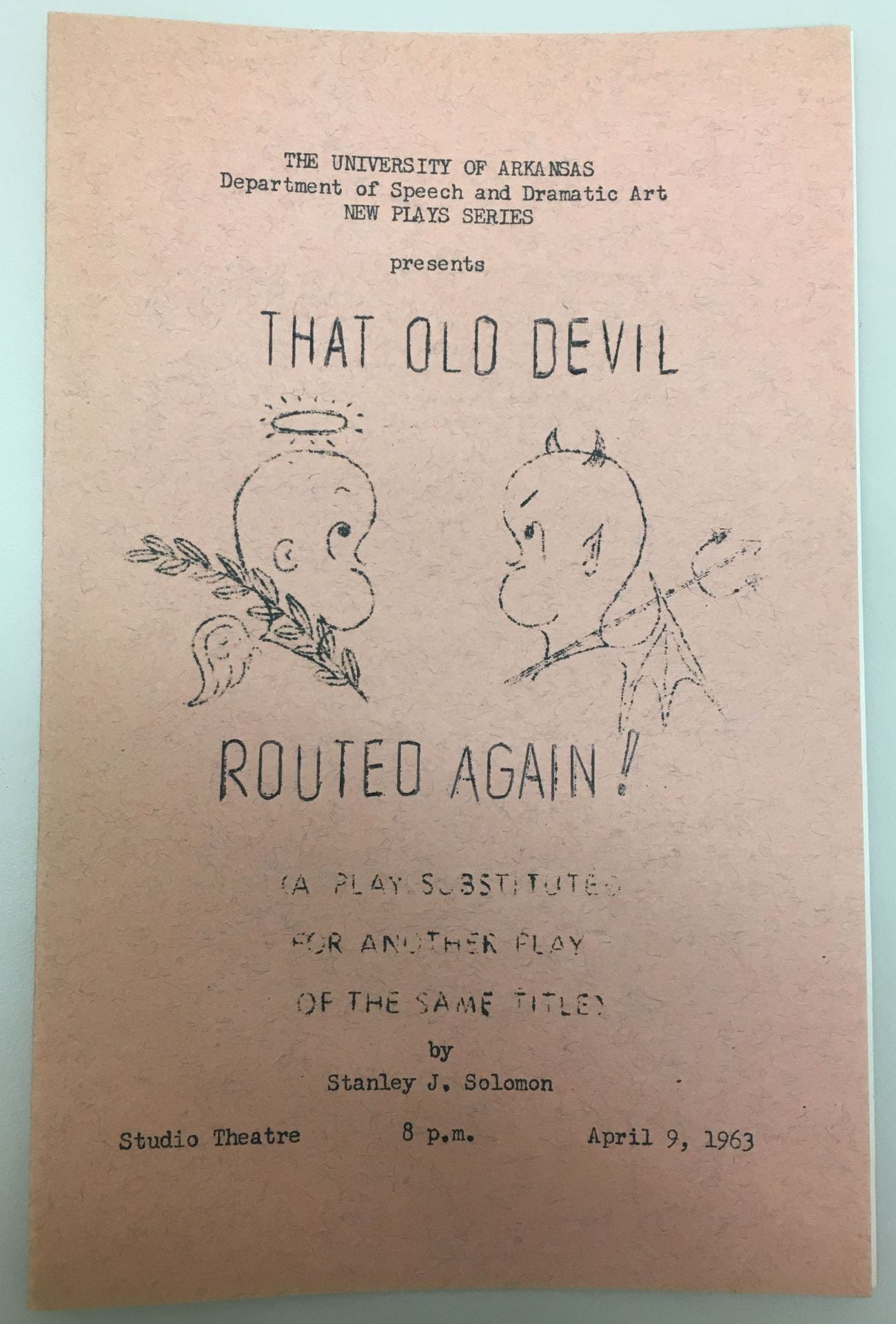 While working on a biographical entry of Virgil Lyle Baker for the Encyclopedia of Arkansas this summer, I also ended up learning about the history of the University of Arkansas theatre program. Virgil L. Baker was a long-time author, playwright, and educator at the University of Arkansas, and took the lead (pun intended) on creating and advocating for the University’s drama program. The University of Arkansas Special Collections holds a collection of Virgil L. Baker’s papers, MC 702, which document his time at the University, and his work surrounding the development of the University Theatre.
While working on a biographical entry of Virgil Lyle Baker for the Encyclopedia of Arkansas this summer, I also ended up learning about the history of the University of Arkansas theatre program. Virgil L. Baker was a long-time author, playwright, and educator at the University of Arkansas, and took the lead (pun intended) on creating and advocating for the University’s drama program. The University of Arkansas Special Collections holds a collection of Virgil L. Baker’s papers, MC 702, which document his time at the University, and his work surrounding the development of the University Theatre.
In 1929, when Baker joined the University of Arkansas faculty, there was no drama program to speak of. At the time of his hire, Baker joined what was then called the “Department of Speech,” which was housed within the College of Arts and Sciences.
Throughout his career, Baker advocated for the creation, and then the expansion, of the drama program at the University of Arkansas. He encouraged the development of a theatre program, and produced both one act and full length plays during his time at the University, drawing from both faculty and students to perform in them. From 1931 onward, Baker advocated for resources to grow the drama program at the University, including a designated theatre instructor, designated classroom, set design and storage, and performance spaces, and a designated budget for producing plays.
Baker oversaw the creation of the early iteration of the University of Arkansas theatre program by overseeing the organization of a student group called the “University Theatre,” which he began in the fall of 1932, with a membership of 50 students. He also secured permission to charge admission to plays, and wrote and produced many of the early plays put on by the University Theatre. Due to the small size of the drama program at this time, many of the earliest plays put on by the University Theatre featured both faculty and students as actors.
During these early decades, the fledgling drama program at the University of Arkansas experienced the tumult of the Great Depression of the  1930s, and the second World War during the 1940s. During these periods, student enrollment declined, and fewer students had time or money to devote to theatre, as Baker writes in a letter to Dean H.M. Hosford in July of 1943: “During the year students in increasing numbers left the classes to serve with the armed forces. . . No major production of plays was given due to the heavy demands of classwork, but the classroom work in dramatics and play production was maintained as usual.”[1] Additionally, the minimal faculty running the program was cut during the depression, and also experienced decline during WWII due to the draft. Baker’s correspondence during these decades documents the decline of student enrollment, and especially the difficulties of losing faculty to the draft
1930s, and the second World War during the 1940s. During these periods, student enrollment declined, and fewer students had time or money to devote to theatre, as Baker writes in a letter to Dean H.M. Hosford in July of 1943: “During the year students in increasing numbers left the classes to serve with the armed forces. . . No major production of plays was given due to the heavy demands of classwork, but the classroom work in dramatics and play production was maintained as usual.”[1] Additionally, the minimal faculty running the program was cut during the depression, and also experienced decline during WWII due to the draft. Baker’s correspondence during these decades documents the decline of student enrollment, and especially the difficulties of losing faculty to the draft
Despite these obstacles, the drama program on campus survived and experienced the most growth during the post-war period, with the opening of the first theatre on campus during the 1951-1952 academic year, the University Theatre, located in the Fine Arts building.
As we begin a new academic year (and a new University Theatre season!) this fall, I’m reminded of all of the staff, faculty, and students who have laid the groundwork for us, including Virgil Baker and his work to establish the University Theatre, which we continue to benefit from today.
[1] Letter from Virgil Baker to H.M. Hosford July 14, 1943, Virgil L. Baker papers.

